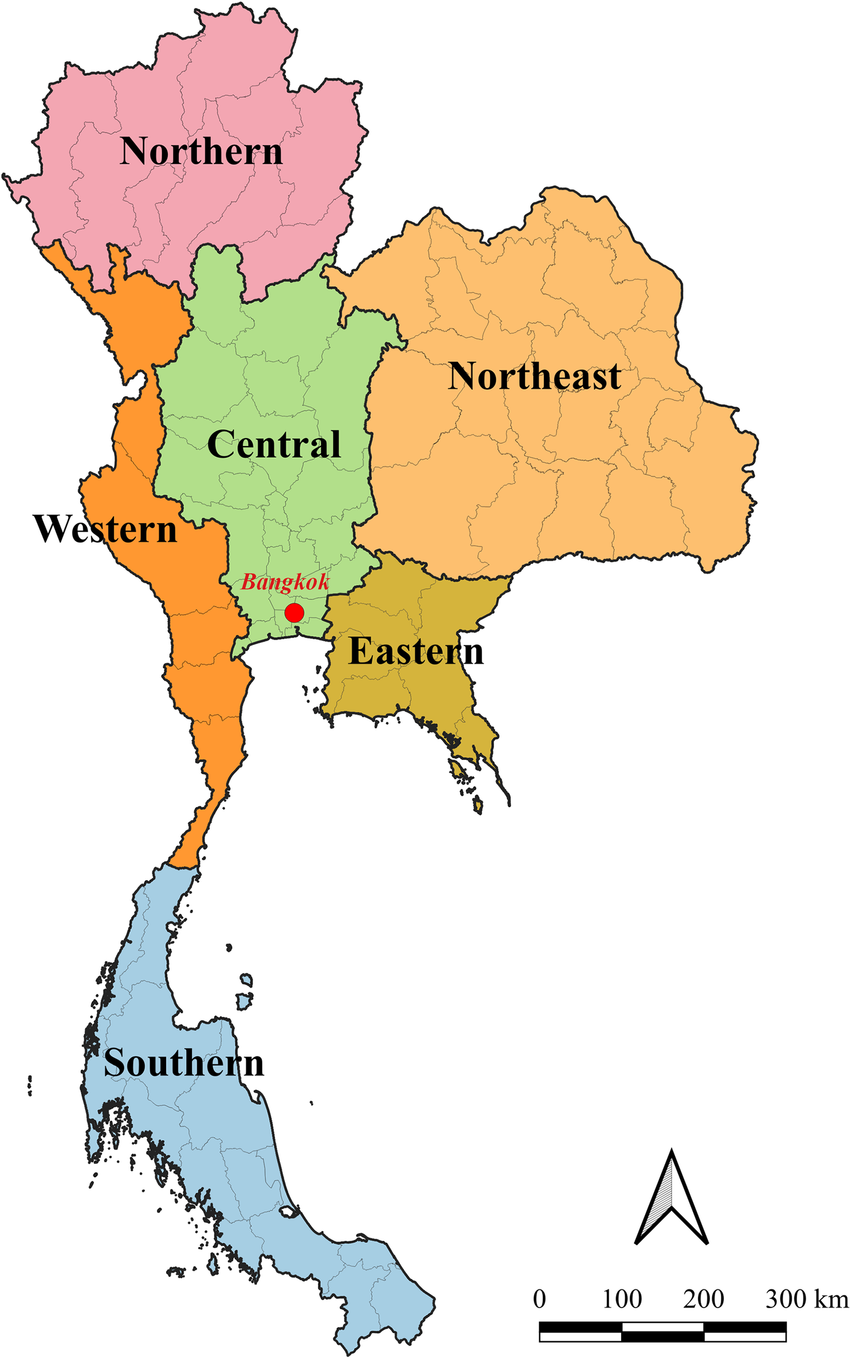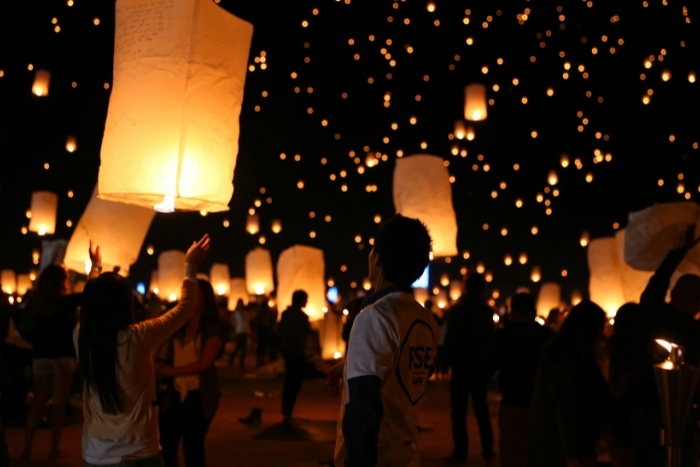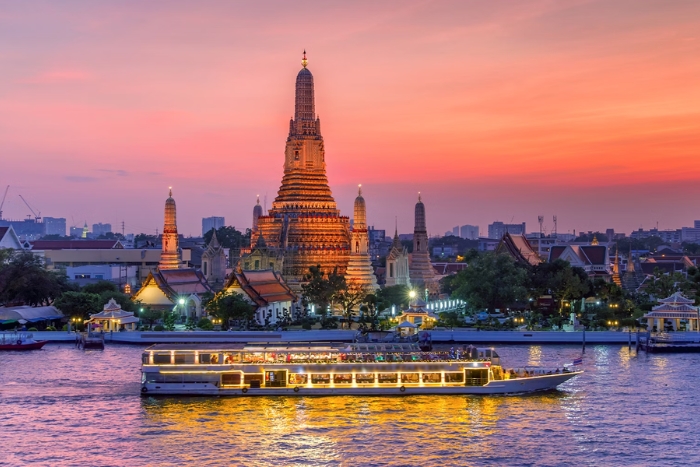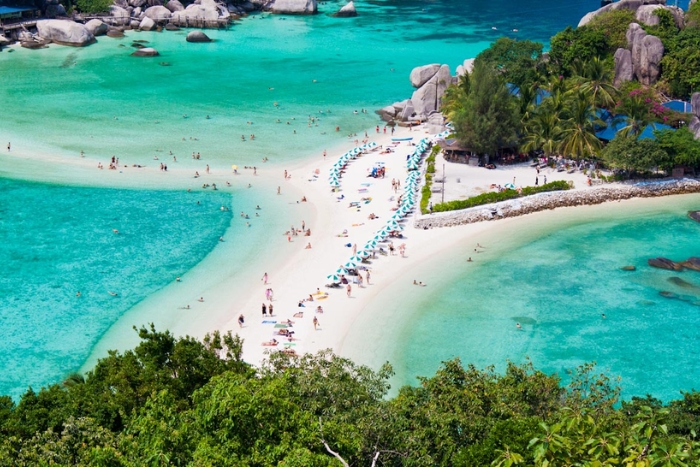Best Time To Visit Thailand - Weather By Region And Month

Thailand is one of Southeast Asia’s most popular destinations, but choosing the best time to visit Thailand depends heavily on the weather. With a tropical climate influenced by monsoons, the country experiences three main seasons: the cool and dry season (November–February), the hot season (March–May), and the rainy season (June–October). While November to February is considered peak season thanks to mild temperatures and clear skies, each region has its own unique climate patterns. Knowing Thailand weather will help you plan the perfect trip, whether you’re after cultural experiences, beaches, or festivals.
When is the best time to visit Thailand ?
I. Weather in Thailand overview
| Season | Period | Temperature | Key Features |
Cool/Dry Season | November – February | 20–32°C | Best time to visit Thailand. Perfect for sightseeing, cultural festivals, trekking, and beach trips |
Hot Season | March–May | 30–40°C | Very hot and humid, best for beach lovers |
Rainy Season | June–October | 28–34°C | Frequent afternoon showers, lush green scenery, and fewer crowds |
II. Weather in Thailand by region

1. Northern Thailand (Chiang Mai, Chiang Rai)
When is best time to visit Thailand ? Northern Thailand experiences three distinct seasons and generally cooler weather compared to the South. The best time to visit Chiang Mai is from November to February, when the air is fresh, the days are dry and mild, and Chiang Mai festivals like Yipeng light up the skies. From July to October, heavy rains transform the scenery into lush green landscapes — perfect for hiking or exploring nature if you don’t mind muddy trails. Each season in the north brings its own charm, whether it’s the vibrant festivals of winter, the hot but lively summer, or the peaceful greenery of the rainy season.

>>> 5 Days In Chiang Rai
>>> What to do in Chiang Rai in 2 days ?
>>> How to spend 24h in Chiang Mai ?
>>> What to do in Chiang Mai in 5 days ?
2. Central Thailand (Bangkok, Kanchanaburi)
Bangkok and Central Thailand are known for their hot summers and humid rainy season. The best time to visit Bangkok is November–February, when the weather is cooler and less humid, ideal for sightseeing at temples, exploring street markets, and strolling along the Chao Phraya River. From March to May, the heat can be intense, while June to October brings heavy showers. During these months, indoor activities like Thai cooking classes, relaxing spa treatments, shopping in air-conditioned malls, or visiting museums are excellent alternatives to outdoor sightseeing.

3. Southern Thailand – West Coast (Phuket, Krabi, Khao Lak)
The West Coast of Southern Thailand, including Phuket and Krabi, is shaped by the southwest monsoon. The best time to visit Phuket and Krabi is from November to March, when sunny skies, calm seas, and gentle breezes make it perfect for island-hopping, diving, and relaxing on the beach. Between May and October, the monsoon brings heavy rain and rough seas, limiting water activities. However, nature lovers will enjoy this season in places like Khao Sok National Park, where waterfalls are stronger, the jungle is lush, and there are fewer crowds.

4. Southern Thailand – East Coast (Koh Samui, Koh Phangan, Koh Tao)
The East Coast islands, including Koh Samui, Koh Phangan, and Koh Tao, follow a slightly different weather pattern. The best time to visit Koh Samui are from January to August, when the sun shines brightly and the sea is calm, perfect for snorkeling, diving, and beach activities. From September to December, the rainy season sets in, with October and November often seeing the heaviest rainfall. While some boat trips may be disrupted, this time of year also means fewer tourists, lower hotel rates, and a quieter atmosphere — great for those seeking a peaceful island escape.

5. Thailand’s Islands (Koh Phi Phi, Koh Chang)
Thailand’s famous islands, such as Koh Phi Phi and Koh Chang, generally follow the weather patterns of the nearest coast. For islands on the west coast like Koh Phi Phi, the best time is November to March, while east coast islands like Koh Chang are better from January to August. During the dry season, the sea is calm and clear, making it ideal for swimming, island-hopping, and snorkeling. The rainy season may bring occasional travel disruptions, but it also offers lower prices, fewer crowds, and a more authentic, laid-back atmosphere — perfect for travelers who enjoy off-the-beaten-path experiences.

III. Weather in Thailand by month - best time to visit Thailand
Month | Key Features | Places to visit |
Cool and dry, ideal travel weather nationwide | Chiang Mai, Chiang Rai, Bangkok, Phuket | |
Pleasant temperatures, clear skies, great for outdoor festivals | Chiang Mai (flower festival), Ayutthaya, Krabi | |
Hotter weather begins, still dry, beaches at their best | Phuket, Krabi, Koh Samui | |
Hottest month of the year, nationwide Songkran Festival | Bangkok, Chiang Mai, Phuket | |
Transition to rainy season, occasional showers, fewer crowds | Koh Samui (still dry), Chiang Mai for quieter travel | |
Rainy season starts, lush landscapes, budget-friendly travel | Koh Samui, Chiang Rai, Bangkok (indoor activities) | |
Rainy, green countryside, fewer tourists | Koh Samui, Chiang Mai, Nan (eco-tourism) | |
Peak of monsoon, heavy showers but short-lived, waterfalls at their best | Koh Samui, Kanchanaburi, Chiang Mai | |
Wettest month in most regions, very quiet for tourism | Bangkok (cultural sites, shopping), Chiang Mai (green season tours) | |
Rain begins to ease, cooler temperatures in the north, Vegetarian Festival in Phuket | Phuket, Chiang Mai, Bangkok | |
Start of the cool/dry season, perfect weather, Yipeng Festival | Chiang Mai, Sukhothai, Bangkok, Krabi | |
Cool, dry, sunny skies; high tourist season; festive atmosphere | Phuket, Chiang Mai, Bangkok, Koh Phi Phi |
In summary, the best time to visit Thailand really depends on your destination and travel style. For first-time visitors, the period from November to February is often considered the safest choice, with mild temperatures and dry weather across most regions, perfect for sightseeing, island-hopping, and cultural exploration. Still, with some flexibility, Thailand is a rewarding destination year-round—lush jungles and waterfalls come alive during the rainy season, while summer heat brings colorful festivals and fewer crowds. If you’re planning your trip, a trusted travel agency in Vietnam – Autour Asia can help design a tailor-made itinerary that fits every season.
>>> Solo Female Travel in Thailand Tips
>>> Solo female travel in Thailand for 3 weeks in October
>>> Thailand Travel Guide
>>> Thailand itinerary for 5 days
>>> Thailand Packages Tours
For a first-time traveler, 10 days in Thailand is often the perfect balance to experience the country’s highlights without feeling rushed. With this amount of time, you can explore Bangkok’s vibrant temples and street food, head north to Chiang Mai for cultural sites and nature, and still enjoy a few relaxing days on the southern beaches or islands. While shorter trips of 5–7 days allow you to focus on just one region, and longer stays of two to three weeks give you the chance to go deeper into off-the-beaten-path destinations, a 10-day itinerary offers the ideal mix of city life, culture, and relaxation.
The best time to visit Thailand for beaches is between December and April, when the weather is sunny, dry, and ideal for swimming or sunbathing. This period is especially popular around Christmas and Easter, making it a favorite choice for families seeking tropical holidays. While March, April, and May are the hottest months of the year, the coastal regions and islands offer perfect conditions for enjoying the sea, although they can be quite crowded. Travelers looking for vibrant beach life, water activities, and guaranteed sunshine will find this season the most rewarding for their trip.
The rainy season in Thailand typically runs from July to October, though showers and storms can begin as early as May. This period of Thailand weather is characterized by heavy but short-lived downpours, often in the afternoon or evening, which can sometimes disrupt travel plans. It’s worth noting that April and May are the hottest months of the year, with temperatures frequently climbing above 40°C (104°F). For travelers who don’t enjoy extreme heat or unpredictable rain, it’s best to plan trips outside these months and opt for the cooler, drier season from November to February.
Related travel guide
Other similar articles
CUSTOMIZABLE BY LOCAL EXPERTS
Personalized trip at the original price!
REFUND GUARANTEE
We believe in our work and promise to give you money back.
GOOD PRICE / QUALITY
95% satisfied more than expected!
24/7 LOCAL SUPPORT
We are always available online to provide assistance at any time.
Most read articles
Autour Asia is highly recommended on
Embracing the mission of "Satisfied more than expected" and providing authentic experiences, we have received numerous recommendations on reputable travel forums:























